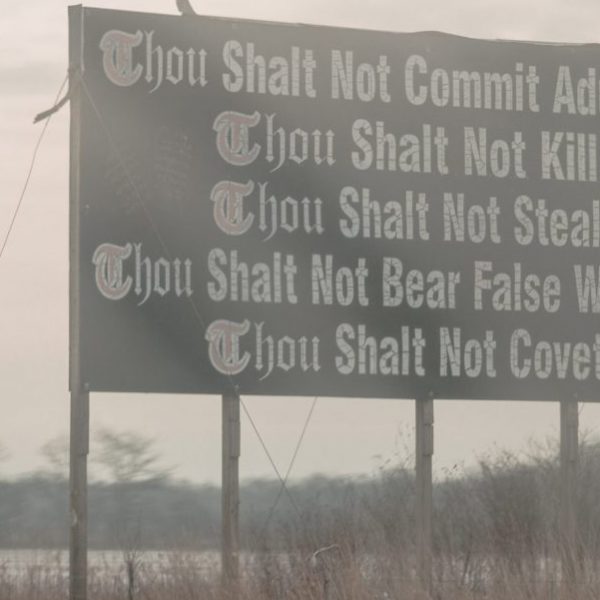Harold Bloom’s Brave Appreciation of the King James Bible
There is no doubt that Harold Bloom is a brave man.
Indeed, only a brave man can acknowledge in his most recent book that “disputes concerning the Bible have been murderous,” and then declare in an interview for the San Francisco Chronicle published a few months later that, “There is no God but God, and his name is William Shakespeare.”
 “It may sound blasphemous, but it isn’t,” Bloom explains to Susannah Carson in her piece for the Chronicle, which focuses on The Shadow of a Great Rock: A Literary Appreciation of the King James Bible, timed to the 400th anniversary publication of the King James Bible. The book offers its author’s literary reflection on one of the great religious texts, and in his introduction, Bloom asserts once and again that literature and religion should not seem so strange a pairing. Rather, Bloom’s self-declared Bardolatry reveals the way in which, for him, religion and literature are one: Shakespeare, a literary master, is a religious deity, and the King James Bible, a religious text, is a literary masterpiece.
“It may sound blasphemous, but it isn’t,” Bloom explains to Susannah Carson in her piece for the Chronicle, which focuses on The Shadow of a Great Rock: A Literary Appreciation of the King James Bible, timed to the 400th anniversary publication of the King James Bible. The book offers its author’s literary reflection on one of the great religious texts, and in his introduction, Bloom asserts once and again that literature and religion should not seem so strange a pairing. Rather, Bloom’s self-declared Bardolatry reveals the way in which, for him, religion and literature are one: Shakespeare, a literary master, is a religious deity, and the King James Bible, a religious text, is a literary masterpiece.
“I’m more a teacher than anything else. But I have a large view of what teaching is,” Bloom tells Carson. More than anything, it seems that Bloom wants to teach us how to appreciate the KJB along with him. According to Carson, “we do need his help: As a reading culture, we increasingly prefer passive distractions to the more satisfying pleasures of engaging with strong literature.” Bloom, too, refers to ours as a “post-literate era,” but he is adamant as to the benefits to be derived from his instruction in the KJB, in particular, and literature more generally.
Accordingly, Bloom writes in his introduction to The Shadow of a Great Rock that “‘Revelation’ ought not to be confined to biblical contexts.” “Literature,” he writes, “in this high sense, is the Blessing: it represents the fullness of life and can give more life,” something we are rarely offered by a YouTube video or a Twitter feed.

























